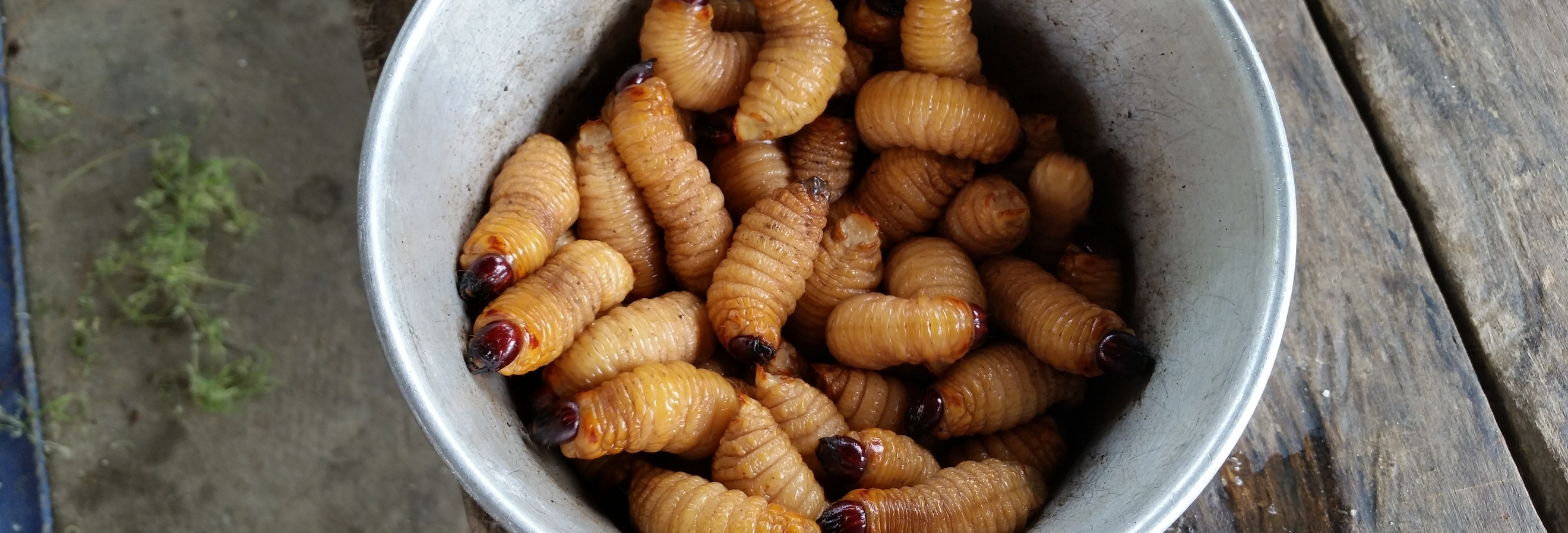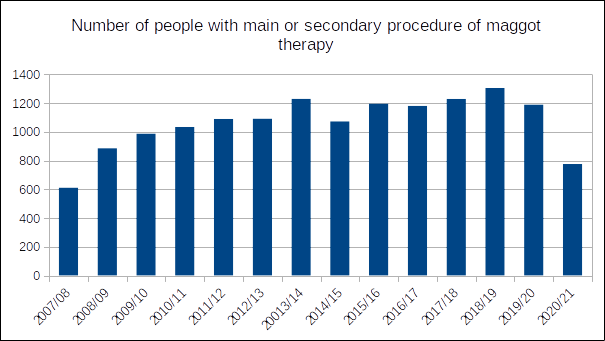
Maggots as an alternative antibiotic?
Maggots are a simple and ancient solution to cleaning wounds. They could also help fight AMR.
Summary: Used since antiquity for wound treatment, maggots are making a comeback. Whilst available on the NHS, there remains a reluctance to use maggot therapy (MT) despite plenty of research supporting its efficacy and cost effectiveness. The "yuck factor" needs to be overcome.
Why this is important: The use of MT can reduce the need for antibiotics as their own action helps to remove and prevent bacteria causing disease.
The big theme: Antimicrobial Resistance (AMR) is a macro threat to the sustainability of the human race and other species. It is of a similar level to that of the worst impacts of climate change. It is important for investors as a source of risk to be understood but also offers potential areas for innovation and investment not just pharmacological with new antibiotic drugs, but also other ways of disrupting the pathogenic (disease causing) nature of microbes. These can be physical, behavioural and can be even be inspired by simple and ancient techniques. Another investment theme that this story highlights is the myriad of uses for insects in both healthcare and in agrifood systems.

The details
Summary of a story from Nursing Times
Maggot therapy (MT), where sterile maggots of the green-bottle fly are used to remove necrotic (dead), infected or soft and watery tissue (debridement) and to keep a wound clean. It is available on NHS prescription in the UK for wound management.
However, a study conducted by researchers from Swansea University and published in the Journal of Wound Care found that wound specialist nurses are more likely to use MT than non-wound nurse specialists. Almost one-third of the latter group said that the idea of MT "made their skin crawl." This suggests that more education is needed across the nursing curriculum.
Why this is important
Maggots have been used since ancient times from the Mayans, Native Americans, Aboriginal tribes in Australia, through the Renaissance to today. Medical maggots are cultivated from sterilised eggs in a lab to ensure they are not carrying harmful bacteria. Data from NHS Digital shows that the use of MT rose almost 50% between 2008/09 to 2018/19. There are plenty of research papers with case studies highlighting the efficacy of the treatment, particularly for the treatment of diabetic foot ulcers (DFU) and the prevention of DFU-related amputation. The maggots are applied either 'free range' directly onto the wound or sealed in a finely woven net pouch. A big provider to the NHS is Welsh based company BioMonde, having sold around 9,000 "biobags" to the NHS in 2021. Maggots have also been used in combination with Moist Exposed Burn Ointment (MEBO) showing even better performance. Their secretions liquefy necrotic tissue but appear to be incapable of digesting live tissue which is a good thing!

As well as debridement, maggots also excrete and secrete compounds that have an antibacterial property. Indeed a benefit of using maggots over conventional surgical wound treatments is the reduced need for pharmacological antibiotics. Maggot secretions and excretions have even been shown to destroy Staphylococcus aureus and Pseudomonas aeruginosa biofilms, as well as preventing the formation of new biofilms.
There is lack of extensive cost-benefit studies of MT over conventional therapies but for example in Canada in 2013, the cost of the operating room alone for a simple surgical debridement under anaesthesia cost CAD4,604 - that does not include the supplies and the surgical staff. The cost of maggots per treatment was CAD69 and can be administered by lower cost nursing staff. BioMonde's biobags cost between £150 and £300 each according to a report in 2021. A typical theatre costs around £1,200 per hour to run and staff. So MT could prove to be a very cost-effective deployable treatment for developed nations, developing nations and hard to reach areas too.
Another natural wound treatment involves the use of manuka honey. Researchers from the University of Manchester concluded from a review of more than 250 articles that compounds in honey, and particularly methylglyoxal found in manuka honey, have strong antibacterial properties and are effective wound healers. Honey's stickiness also acts as an effective barrier between the wound and the outside world. Manuka honey can even make antibiotics more effective in some cases. Methicillin-resistant Staphylococcus aureus (MRSA) is normally resistant to the antibiotic oxacillin, but manuka honey reverses that.
There are other non-surgical debridement solutions too. NHS Supply Chain offers a product, Debrichem, which is a gel that showed cost savings over standard care alone over a 12 month period.
There has been some success in the pharmacological space. GSK, one of the last big players in the antibiotics space, has potential new therapies for urinary tract infections (UTIs) and urogenital gonorrhoea as well as one for TB. In the case of the UTI/gonorrhoea antibiotic, gepotidacin it is the first new therapy in 20 years and GSK halted its phase III trials and is prepping its FDA submission. Phase II data for the potential TB therapy (the agent is referred to as "GSK3036656") showed both bactericidal activity (it killed the harmful bacteria) whilst showing no serious side effects. Traditionally a pharmaceutical firm spends a large amount of money on R&D in the hope of recouping that spend (plus some profit for shareholders and for reinvestment) in the form of sales of the drug. i.e. a consumption-based model. The problem with antibiotics is that many are genericised and so pricing is low, but also, for good stewardship reasons, doctors are reluctant to prescribe them, hence consumption is low. Over the last 10 years, the average revenue for an antibiotic has been just $50 million which is just not enough. Fortunately there are some new 'pull incentive' models such as the UK NHS subscription scheme that are driving investment. However, we can't rely on new pharmacological antibiotic discovery alone.
Maggots could have further health and wellness benefits beyond helping in the fight against AMR. Insects, including maggots are regularly eaten in certain parts of the world and could, as ingredients in existing products like sausages or even ice-cream, become more common place, just as they could in animal feed and pet food.
Something a little more bespoke?
Get in touch if there is a particular topic you would like us to write on. Just for you.
Contact us
Please read: important legal stuff.

